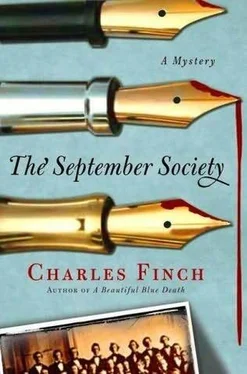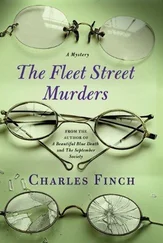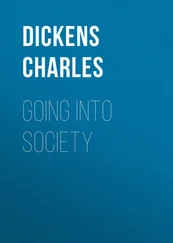Charles Finch - The September Society
Здесь есть возможность читать онлайн «Charles Finch - The September Society» весь текст электронной книги совершенно бесплатно (целиком полную версию без сокращений). В некоторых случаях можно слушать аудио, скачать через торрент в формате fb2 и присутствует краткое содержание. Жанр: Исторический детектив, на английском языке. Описание произведения, (предисловие) а так же отзывы посетителей доступны на портале библиотеки ЛибКат.
- Название:The September Society
- Автор:
- Жанр:
- Год:неизвестен
- ISBN:нет данных
- Рейтинг книги:4 / 5. Голосов: 1
-
Избранное:Добавить в избранное
- Отзывы:
-
Ваша оценка:
- 80
- 1
- 2
- 3
- 4
- 5
The September Society: краткое содержание, описание и аннотация
Предлагаем к чтению аннотацию, описание, краткое содержание или предисловие (зависит от того, что написал сам автор книги «The September Society»). Если вы не нашли необходимую информацию о книге — напишите в комментариях, мы постараемся отыскать её.
The September Society — читать онлайн бесплатно полную книгу (весь текст) целиком
Ниже представлен текст книги, разбитый по страницам. Система сохранения места последней прочитанной страницы, позволяет с удобством читать онлайн бесплатно книгу «The September Society», без необходимости каждый раз заново искать на чём Вы остановились. Поставьте закладку, и сможете в любой момент перейти на страницу, на которой закончили чтение.
Интервал:
Закладка:
“As you originally conjectured, not me. But pray go on.”
“It was poisoned about an hour before it died. That fact points to premeditation, clearly. Well-taken-care-of animal-expensively bred, I should say, though really I’m more expert when it comes to dogs.”
“Any indication about the weapon?”
“Ah, yes-a letter opener, with the letter P engraved on it, as we both saw. Dates back about twenty years-it has a manufacturer’s mark from the 1840s.”
“Did you ever know James Payson?”
“The lad’s father? No. What was he like?”
“Terrible temper… had an awful scar on his throat. An unpleasant chap. At any rate, what else did you find?”
“The remaining question is, of course, why did someone want to send the young fellow this kind of message?”
“Do you think so? I see it rather differently.”
“Oh yes?”
“I think Payson himself killed the cat. Longshanks, they called him.”
“No, really? Why on earth would he have done that?”
“A better question would be, why would the people hunting him down have done it? It immediately makes his disappearance suspect, doesn’t it? I think if I kidnapped somebody, I would want to make everything he left behind seem as normal as possible.”
“Something in that.”
“And then consider that there was that cryptic note underneath the cat. Maybe he felt he couldn’t leave a note in plain sight, so he had to kill the cat to conceal it. Difficult to focus on finding a letter when there’s a dead cat in the middle of the floor.”
McConnell laughed wryly. “Yes, I grant you that. But why not write a more explicit note?”
“Perhaps he felt that even with the dead cat there, he couldn’t risk it. Did he know Bill Dabney was in danger? Perhaps. Or perhaps he feared for his mother’s safety, Stamp’s safety. Any of a dozen reasons.”
McConnell frowned. “But here’s my trump card, Lenox-the cat had been fed poison an hour before it died. If Payson were in a rush, he couldn’t have afforded an hour.”
“I would make the same argument about our criminal, or criminals-they would be less inclined to linger in their victim’s room than anybody, wouldn’t they? In a college with round-the-clock security, where anybody unusual would instantly stand out? As for Payson, I should say that he saw the danger coming early. That would explain his detached and anxious behavior with his mother, with whom he was usually on such good terms. Or alternately, perhaps he found the cat poisoned and decided to put it to use, the poor thing.”
“What on earth do you think it means?”
“There you take me into deeper waters. It’s difficult to gauge whether the cat was merely used to conceal a message, or whether it was in itself a message-to us.”
There was a pause while McConnell seemed to consider something. At last he laid his fork and knife down and said, “You know, it really is good of you to use the word ’us,’ Charles.” It had plainly been difficult for him to say.
“Pure self-interest,” said Lenox. “I’d drop you in a second if you weren’t so useful.”
Both men laughed. They resumed eating, and the conversation moved into other areas; while Lenox still enjoyed it, he saw the spark of involvement dying away that had lit McConnell’s face while they talked about this poor, absurd cat. Soon the Scotsman laid down his fork and knife altogether, his eyes fell slightly, and he pulled a flask from his side pocket.
A short while later McConnell had gone back to his hotel to turn in, and Lenox had started toward the Mitre (his fourth pub of the day, he thought with a smile) to find Andy Scratch.
He was a big, hale young man with a friendly face. Lenox found him, as predicted, playing cards with the man behind the bar, who was small and strong-looking-an ex-jockey or bantamweight boxer, perhaps. A little pile of peanuts that marked their debts to each other sat between the two men.
“Could I have a word?” Lenox asked Scratch.
“Certainly. What are you drinking?”
“Oh-a half of bitter, please. Thanks.”
Scratch nodded at the bartender. “Do you mind, Bob?” The bartender went down to the tap, and the lad said, “How can I help you?”
“It’s about George Payson and Bill Dabney. They’re missing.”
“Dabs and George? Never! I saw them in hall only two evenings ago!”
Hall at Oxford, no matter the college, was always a pleasure; it was what everyone who had been there thought of first when Oxford came up. Students sat at the lower tables, eating, drinking, and mostly laughing, while the fellows gazed on sternly from the high table. There was a long-winded Latin grace, always a great deal of wine, and the nostalgic sparkle of candlelight and crystal. At Balliol, Lenox had sat with the same people for three years, many of them to this day his dearest friends. There was one tradition of hall that was universal in Oxford and Cambridge: pennying. If one could surreptitiously bounce or drop a queen’s-head penny into a tablemate’s wineglass, the glass’s owner would have to drink its entire contents in one go to “save the Queen from drowning.” As a result, much of supper was spent with one’s hand covering one’s wineglass…
Lenox again outlined the situation. The young man was amiable enough, and the half pint went quickly, but he wasn’t able to offer much help. Lenox asked him to keep an eye out for his friends and thanked him for the drink.
As the detective was parting, though, he said, “By the way, do you know what the September Society is?”
“Of course I do,” said the young man. “My father was a military man himself.”
CHAPTER ELEVEN
L enox sat at the Turf Tavern, sipping a pint of stout. He was in a small window seat near the bar that had once been famous for belonging to Jack Farrior, the noted professor of maths at Merton. Every morning at eleven, old Farrior came to the Turf to work on his great theorem of prime numbers, which he said would build on Gauss’s work. He knew he had done enough for the day when there were six empty glasses on the table-he asked the bartender to leave them there so that he could tell. Wrestling with the great mathematical problems of the day and unable to count to six without assistance, as Edmund had always joked.
Farrior had once caught Lenox and his friend Christopher Compton invading Merton to steal the fellows’ Christmas pudding. The pudding took a month to make and spent most of that time buried underground in a patch of earth on Christ Church Meadow, to absorb the earth’s dampness. Stealing it was Lenox’s third-year practical joke. The two lads had glided silently down the river on a stolen punt to come toward the meadow from its other end, disembarked, and begun digging. Things were going perfectly until Farrior stumbled upon them. It was an incriminating scene. They were both covered with dirt and had shovels in their hands and dark clothes on.
He stared for a moment. “What’s two plus five?” he had said, chewing on the end of his pipe.
“Seven,” Compton had said. “Last I checked.”
“How about three plus four?”
“Also seven, I should say.”
With a twinkle in his eyes, Farrior had said, “I myself hate Christmas pudding. Have since I was a boy. Tastes of ashes.” Then he had walked away, leaving Lenox and his friend in fits of laughter as they finished the job. It was still part of Balliol lore, passed down to each incoming class along with the theft of the Wadham chandelier and the transfer of several deer from Magdalen’s deer park to the Brasenose courtyard.
There was such a multitude of memories and associations here! He loved this little, many-roomed tavern, its low ceilings and smell of barley, its black casks of ale, its glass decanters of brandy. It was part of his love for Oxford.
Читать дальшеИнтервал:
Закладка:
Похожие книги на «The September Society»
Представляем Вашему вниманию похожие книги на «The September Society» списком для выбора. Мы отобрали схожую по названию и смыслу литературу в надежде предоставить читателям больше вариантов отыскать новые, интересные, ещё непрочитанные произведения.
Обсуждение, отзывы о книге «The September Society» и просто собственные мнения читателей. Оставьте ваши комментарии, напишите, что Вы думаете о произведении, его смысле или главных героях. Укажите что конкретно понравилось, а что нет, и почему Вы так считаете.












